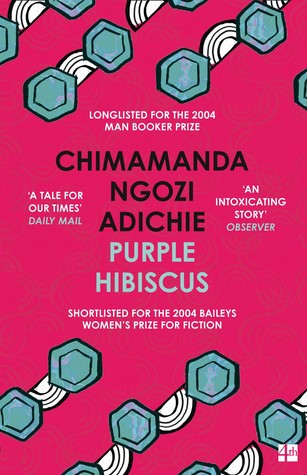By Lauren Pulh, Year 11
Purple Hibiscus is a novel by the Nigerian author Chimamanda Ngozi Adichie, first published in 2003. The book tells the story of a young girl named Kambili, who grows up in a wealthy but oppressive household in Nigeria, where her father is a devout Catholic who imposes strict religious and moral codes on his family.
The novel is set against the backdrop of political and social unrest in Nigeria during the 1990s. The country is facing a period of transition from military dictatorship to democracy, and the people are struggling to find their place in a changing society. Kambili’s father, Eugene, is a successful businessman who is deeply involved in politics, and he uses his wealth and influence to promote his own vision of a better Nigeria.
But beneath the surface of the family’s perfect facade lies a darker truth. Eugene is a tyrannical father who rules his household with an iron fist, subjecting his wife and children to constant emotional and physical abuse. Kambili and her brother Jaja are forced to adhere to their father’s strict religious beliefs and live their lives according to his rigid moral code. Any deviation from his expectations is met with harsh punishment, including beatings and isolation.
Despite the oppressive nature of her upbringing, Kambili is a bright and curious girl who yearns for more than the sheltered life her father has imposed upon her. Her world begins to open up when she and Jaja are sent to stay with their aunt and cousins in a more relaxed environment, where they are introduced to new ideas and experiences. Kambili is particularly drawn to her cousin, Amaka, who challenges her to think for herself and question the authority of their father.
As Kambili’s world expands, she begins to see her father in a new light, recognizing the cruelty and hypocrisy that lie beneath his seemingly benevolent exterior. She and Jaja become more independent and begin to push back against their father’s control, even as the political situation in Nigeria grows more precarious.
Throughout the novel, Adichie skillfully weaves together themes of family, religion, politics, and personal growth. She portrays the complexity of Nigerian society, where traditional values clash with modern ideas, and people struggle to find their place in a rapidly changing world.
Purple Hibiscus is a powerful and moving novel that explores the impact of authoritarianism and the importance of individual freedom. It is a testament to the resilience of the human spirit and the power of hope and love to overcome even the darkest of circumstances.



